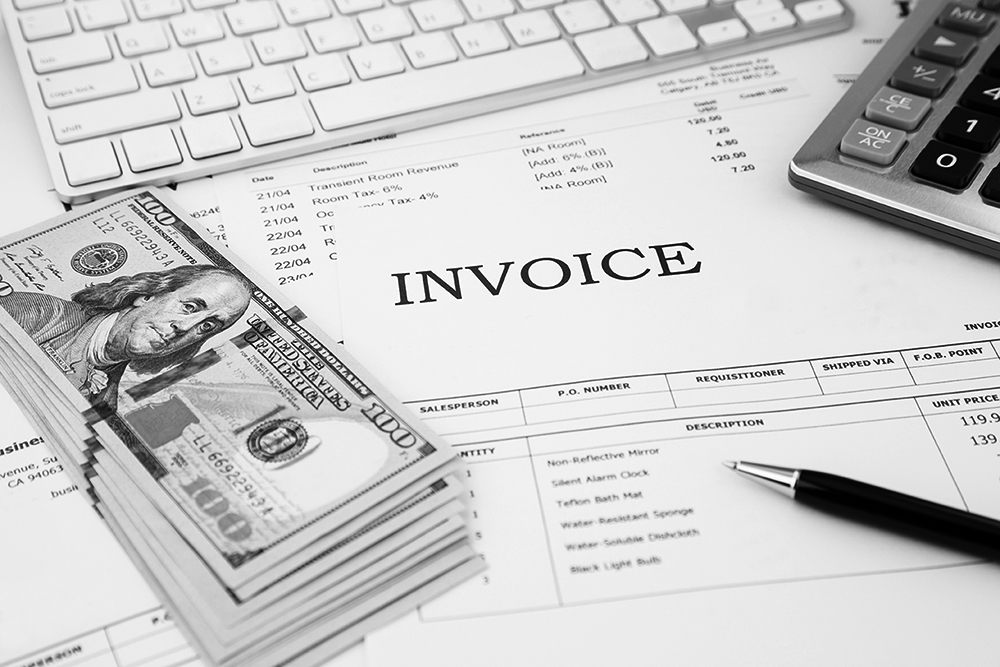
Invoice factoring is a form of financing in which a business owner sells an invoice to a factoring company for quick access to funds. The business owner receives the invoice amount, usually minus a fee, in cash prior to the due date. The customer of the business owner responsible for paying the invoice pays the invoice amount to the factoring company on behalf of the original payment terms. Invoice factoring is also known as receivables factoring or receivables financing.
(It’s important to note that this is different from invoice financing, where a factoring company still gives a business owner cash for their invoice, but the business owner pays back the invoice amount themselves, plus a fee.
Invoice factoring is type of invoice finance where you "sell" some or all of your company's outstanding invoices to a third party as a way of improving your cash flow and revenue stability. A factoring company will pay you most of the invoiced amount immediately, then collect payment directly from your customers.
It’s not a loan; business owners don’t have to worry about paying the money back because their customer pays the factoring company. Most importantly, choosing to factor invoices doesn’t mean a business is struggling or can’t reliably serve its customers.
Add to this the notion that many traditional factoring companies charge hidden fees, don't pay full invoices, and take weeks to pay, and you can see why some people get a bad impression of factoring.
Fortunately, the facts are very different. Invoice factoring makes your business more successful when you need to maintain cash flow despite long-term bill payments. (In fact, this often helps business owners worry less about cash flow!) Let me be specific.
The reason for the high demand for invoice factoring is the long business-to-business (B2B) settlement period, which creates cash flow problems. Standard payment terms in many industries are often between 30 and 120 days. Instead of receiving payment right after the business owner provides goods and/or services, they should wait until they receive payment from the customer.
This is a particularly difficult problem for small business owners with large customers. They're happy to land a big deal with a well-known customer, but when they read the payment terms, they realize they won't get paid for several months.
This affects your ability to maintain positive cash flow, making doing business difficult as well as creating anxiety. These small business owners need this money as soon as possible to pay for expenses that can include:
Each factoring company, business and client is different, so we summarize these steps accordingly. This is about what you would expect given your invoice.
Business owner issues unpaid invoice for financing.
Traditional invoice factoring companies often require businesses to account for all invoices for the duration of the contract. Many new companies give you a choice of accounts to fund. (Full disclosure: Fund Through allows you to choose which accounts to fund with no minimum, maximum and long-term commitments.) The Factoring Company does its due diligence. Often this includes verifying that the business is legally established, subject to current taxes, and that there are no accounts receivable and/or liens on certain accounts.
(Many factoring companies will find a way to work with the business if they have such issues.) At this point, the factoring company also verifies the authenticity of the invoice.
A company customer has been asked to sign a NOA. By signing the transfer notice, the customer who owns the account understands that the factoring company now owns the account and can redirect payments. Many business owners care about customer engagement, but many large companies are comfortable with the process.
The business owner receives the funds. Business owners receive cash from their bank account minus a fee (or factoring fee). Now they can be confident that they have the cash to grow their business or cover other cash shortfalls. (This is our favorite part!)
Customer pays the factoring company according to the terms of the invoice.
When the invoice is due, the customer pays the factoring company and the process is complete.